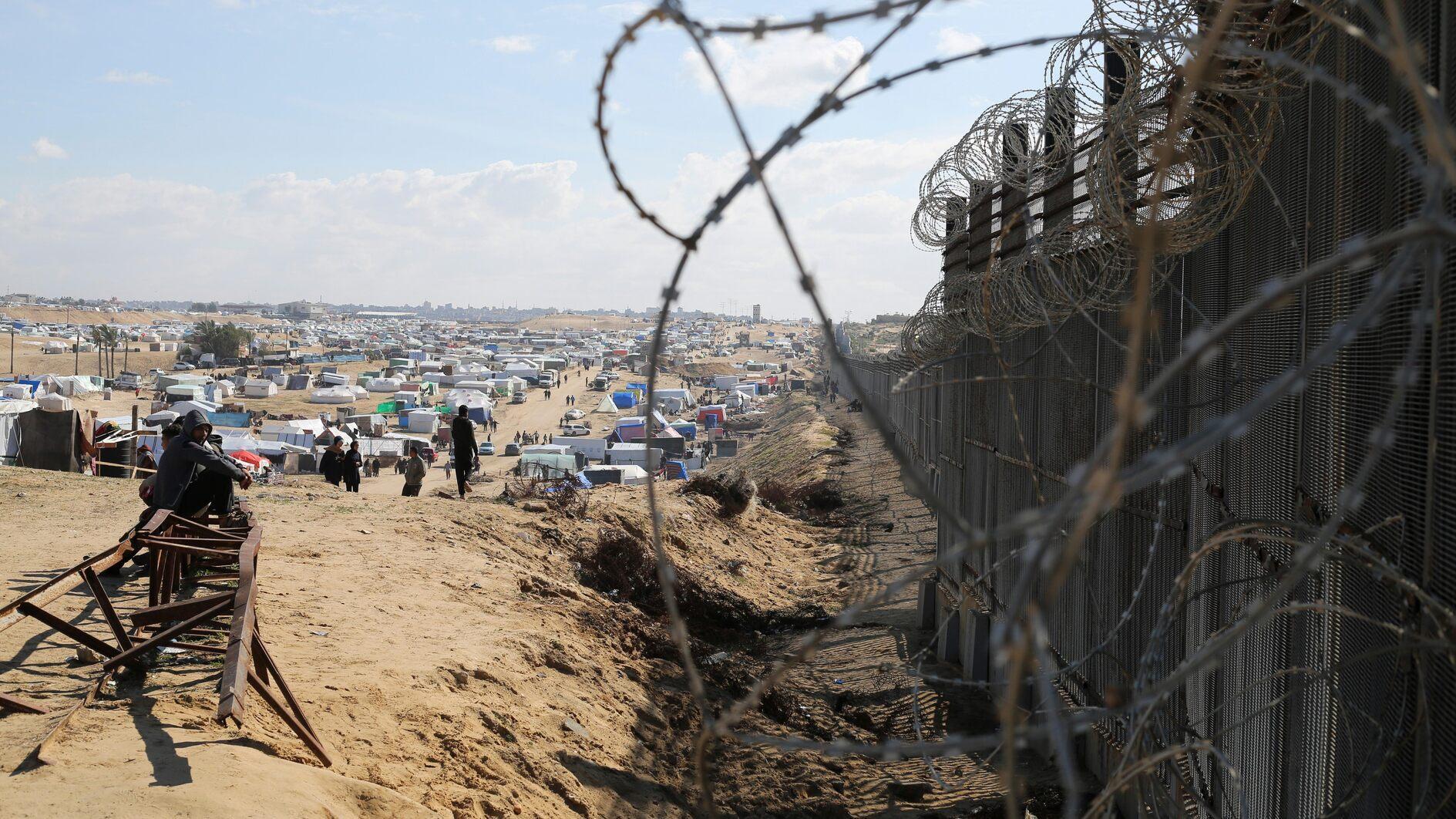Civilians trapped by fighting in Gaza's south, Hague decision looms
JERUSALEM

Concern grew on Friday for civilians trapped by fighting around Khan Yunis in Gaza's south, with the top U.N. court set to rule in a case against Israel over alleged genocidal acts in its campaign against Hamas.
The International Court of Justice (ICJ) in The Hague could order Israel to halt its military action in Gaza, launched in retaliation for Hamas's unprecedented attacks on Oct. 7, although it has little power to enforce its rulings.
A growing chorus of international voices has expressed concern for the civilian population of Khan Yunis, the main city in Gaza's south, and elsewhere in the territory.
Further north on the outskirts of Gaza City, the Hamas-run health ministry said on Thursday that 20 people were killed and another 150 wounded while they waited for humanitarian aid to be distributed.
"People were going to get food and flour as they had nothing to eat," Abu Ata Basal, the uncle of one of the wounded, told AFP.
"Suddenly, tanks appeared and started firing shells at the people, who were cut into pieces."
Bodies were seen lying on the floor of Al-Shifa hospital in Gaza City, an AFP journalist said.
Hamas said the incident amounted to a "horrific war crime", which Palestinian militant group Islamic Jihad said was caused by "artillery shells and missiles".
U.N. shelter hit
The Gaza City strike came a day after the United Nations said tanks had shelled a U.N. shelter in Khan Yunis, killing 13 people.
France called on Israel to "comply with international law" and joined the United States in condemning the Khan Yunis strike, although it did not directly identify Israel as responsible.
The Israeli military is the only force known to operate tanks in Gaza, which Hamas has ruled since 2007.
Hamas also reported fierce clashes in the centre and west of Khan Yunis, the hometown of Hamas's Gaza chief Yahya Sinwar, the suspected mastermind of the Oct. 7 attacks.
Those assaults resulted in about 1,140 deaths, mostly civilians, according to an AFP tally of official Israeli figures.
Militants also seized about 250 hostages and Israel says around 132 of them remain in Gaza, including the bodies of at least 28 dead captives.
Israel vowed to crush Hamas in response and launched a military offensive that the Palestinian territory's health ministry says has killed at least 25,900 people, about 70 percent of them women and children.
Israel's military said several militants were killed in "close-quarters combat" in Khan Yunis and weapons including rifles, grenades and mortar shells were found.
An AFP journalist said the bombardment was incessant on Thursday in Khan Yunis, where the Israeli military says the Hamas leadership is in hiding.
The Gaza health ministry said 120 people were killed across Gaza overnight.
'Sea of people'
Germany also said it was extremely concerned by the "desperate situation" faced by civilians in Khan Yunis, where fighting has been inching closer to hospitals sheltering thousands of displaced people.
Many thousands more have fled the city to seek refuge in Rafah, further south on the Egyptian border, where most of the 1.7 million Palestinians displaced by the war have gathered.
They piled their belongings on cars, in donkey-drawn carts, and on tractors, while many others fled on foot.
Genocide ruling
South Africa lodged an application with the ICJ last month arguing that Israel was violating the U.N. Convention on Genocide and seeking urgent measures to protect Palestinians in Gaza.
While the ICJ's decision on that application is due on Friday, a judgment on whether or not Israel is committing genocide in Gaza could take years.
Hamas pledged on Thursday to respect a ceasefire if called upon by the Hague tribunal, on condition that Israel also complies.
The case has sparked fury in Israel, with Prime Minister Benjamin Netanyahu vowing "no one will stop us".
U.S. media reported late on Thursday that CIA director William Burns would travel to Europe soon to meet his Israeli and Egyptian counterparts, as well as the Qatari prime minister, in a bid to negotiate another truce in Gaza and the release of hostages.
The New York Times and the Washington Post quoted unidentified officials as saying Burns would seek to launch a new round of talks, although the U.S. intelligence agency and the White House declined to confirm his travel plans.
Under a week-long truce in November, about 100 hostages were freed by Hamas in exchange for 240 Palestinian prisoners held by Israel.
U.S. President Joe Biden's Middle East envoy Brett McGurk is already in the region for talks.
















